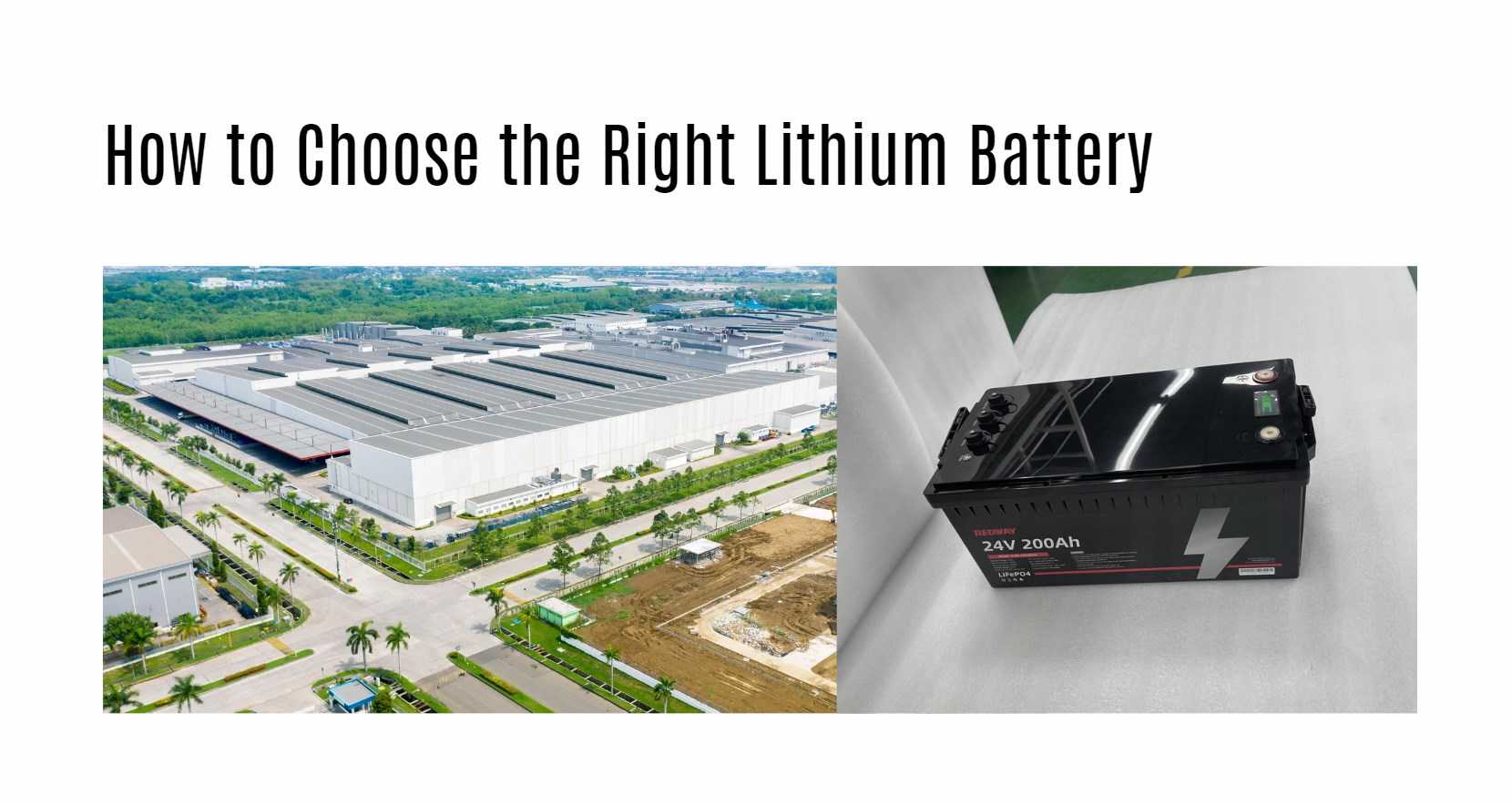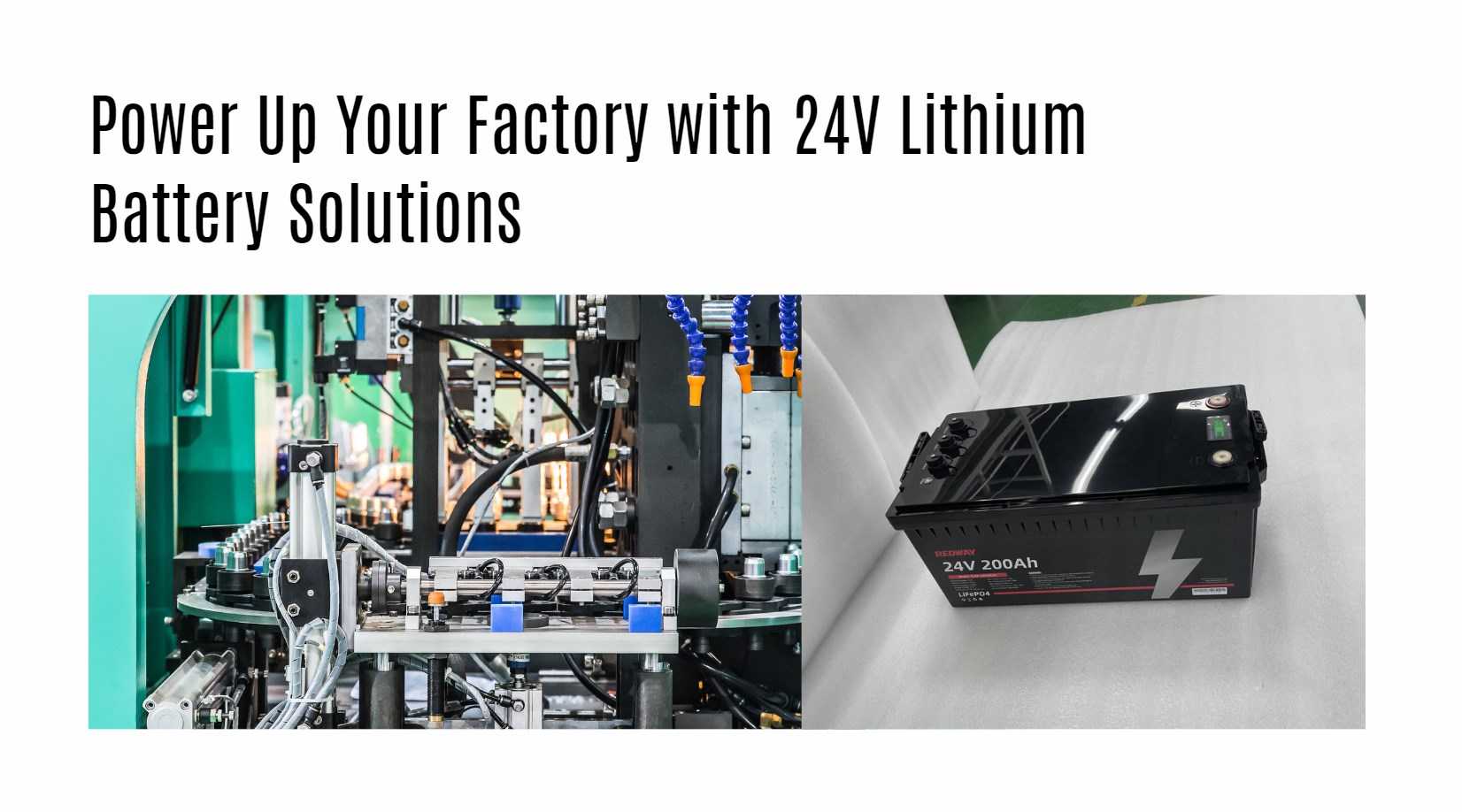Welcome to our blog post on power up your factory with 24V lithium battery solutions! The manufacturing industry is constantly evolving, and so are the technologies used within it. One of the most significant advancements in recent years has been the adoption of lithium batteries. As manufacturers rely more on automation and robotics, they require reliable power sources that can keep up with their needs. In this article, we will explore why lithium batteries are becoming a popular choice for manufacturers, their benefits compared to traditional lead-acid batteries, how to choose the right one for your factory’s needs, top manufacturers in the market and how to dispose of them properly. So let’s dive in!
Lithium Batteries in Manufacturing
Lithium batteries have been a long-standing favorite for powering portable devices such as smartphones and laptops because of their high energy density, low self-discharge rates, and longer lifespan. However, they are now gaining popularity in the manufacturing industry due to their ability to power heavy-duty equipment and machinery.
The adoption of automation technologies has revolutionized the way factories operate. With increased productivity comes an increased demand for reliable energy sources that can keep up with production demands. Lithium batteries offer manufacturers a flexible and efficient solution to meet these needs.
Unlike traditional lead-acid batteries that require maintenance such as watering or cleaning, lithium-ion batteries do not need any upkeep, which saves time and money. Additionally, they take up less space than older battery technologies while providing more power output per unit weight.
Lithium batteries provide manufacturers with an innovative solution that improves efficiency while reducing downtime caused by battery-related issues. By switching from lead-acid to lithium-ion technology, businesses can save on maintenance costs while ensuring their operations run smoothly at all times.
Why Choose Lithium Batteries?
When it comes to powering up your factory, the choice of battery is crucial. Lithium batteries have become an increasingly popular option for manufacturers due to their numerous benefits.
Firstly, lithium batteries are incredibly efficient and long-lasting. They can provide consistent power over a longer period without needing frequent recharging. This means less downtime in production and more productivity overall.
Secondly, lithium batteries are lightweight and compact compared to other battery types. This makes them easier to handle and install within machinery or equipment.
Thirdly, they also have a higher energy density which allows them to store more power in a smaller space than other types of batteries. As a result, this leads to better performance from the machines that rely on these batteries.
Lithium-ion technology provides stable voltage throughout its discharge cycle while maintaining high energy storage capacity even after multiple cycles of discharging and recharging. This feature ensures no loss of efficiency over time making them cost-effective in the long run.
All these factors make choosing lithium batteries as an ideal option for those who want maximum power potential with minimum hassle!
What are the Benefits of Lithium Batteries?
Lithium batteries have become increasingly popular in recent years, and for good reason. These batteries offer a wide range of benefits that make them an attractive option for various industries, including manufacturing.
One major benefit of lithium batteries is their high energy density. This means they can store more energy than traditional battery types, which allows them to power devices for longer periods without needing to be recharged.
Another advantage of lithium batteries is their low self-discharge rate. Unlike other rechargeable battery types that lose charge over time, lithium batteries retain their charge even when not in use for extended periods. This makes them ideal for applications where long-term storage is required.
Furthermore, lithium batteries are lightweight and compact compared to other battery types with the same capacity. This makes them easier to transport and install within equipment or machinery.
In addition, Lithium-ion technology offers fast charging times enabling quicker return-to-service intervals.
Because they contain fewer toxic materials than other battery technologies like lead-acid or nickel-cadmium (NiCad), disposing of these cells has less environmental impact.
The benefits of using lithium ion batteriers depend on your specific application’s needs but also provide advantages over alternative power sources as well as reduced environmental impact from disposal compared with traditional industrial cell chemistries
How to Choose the Right Lithium Battery
Choosing the right lithium battery is crucial for any manufacturing facility. There are a few factors to consider when selecting the right battery for your needs.
First, you need to determine the power requirements of your equipment. This will help you choose a battery with sufficient voltage and current capacity.
Secondly, consider the size and weight of the battery. While larger batteries may provide more power, they can also be cumbersome and take up valuable space on your factory floor.
Thirdly, think about the operating temperature range of your equipment. Lithium batteries perform best at moderate temperatures, so it’s important to choose one that can withstand high or low temperatures if necessary.
Another important factor is safety features such as overcharge protection and thermal management systems. These features protect against damage caused by improper use or charging of the battery.
Consider whether you want rechargeable or disposable batteries based on how frequently they will be used in your operations.
By considering these factors when choosing a lithium battery for your manufacturing facility, you can ensure optimal performance and longevity from your equipment while maintaining safety standards.

Top 5 lithium battery manufacturers
There are numerous lithium battery manufacturers in the market today, and finding the right one for your manufacturing needs can be a daunting task. To help you out, we’ve compiled a list of the top 5 lithium battery manufacturers that can power up your factory.
First on our list is Tesla, known for their electric cars and innovative energy storage solutions. Their Powerwall and Powerpacks are popular choices for renewable energy systems.
Secondly, LG Chem has been providing batteries to various industries since 1999. They offer high-performance lithium-ion batteries with long cycle life and excellent safety features.
Panasonic is another reputable manufacturer that produces durable and reliable lithium-ion batteries suitable for industrial use. Their NCR18650A cells have gained popularity due to their superior performance and reliability.
Samsung SDI’s expertise in producing high-quality rechargeable batteries made them an industry favorite. Their prismatic pouch cell technology offers better thermal stability than traditional cylindrical cells.
BYD Company Limited provides cost-effective solutions with its iron-phosphate-based Lithium Iron Phosphate (LiFePO4) battery technology known for its robustness in different environments.
These are just some of the best options when it comes to choosing a lithium battery manufacturer. It’s essential to conduct thorough research before making a final decision as each brand has its unique strengths and weaknesses depending on your specific requirements.
How to properly dispose of lithium batteries
Proper disposal of lithium batteries is crucial to ensure that they don’t cause harm to the environment. These types of batteries contain dangerous chemicals and metals that can be extremely harmful if not disposed of correctly.
Firstly, it’s important to know where you can dispose of lithium batteries safely. Most cities have recycling centers or hazardous waste facilities that accept these types of batteries. You can also check with local electronics retailers as some may offer battery recycling services.
When disposing of lithium batteries, it’s essential to prep them beforehand by taping the terminals with electrical tape to prevent any potential short circuits from occurring during transport.
It’s important never to throw away used or damaged lithium batteries in the regular trash bin as they end up in landfills, which can lead to contamination and environmental pollution.
In addition, reusing old but still functioning Lithium-ion Batteries is another way for proper disposal. Removing them from electronic devices upon replacement will allow them a second life cycle before being completely decommissioned.
Properly disposing of your used lithium batteries is a responsibility we all share for the betterment of our environment and personal safety.
Conclusion
To sum up, 24V lithium battery solutions are becoming an increasingly popular choice for manufacturers looking to power up their factories. The benefits of lithium batteries over traditional lead-acid batteries are numerous and significant, including longer lifespan, higher energy density, and faster charging times.
When choosing the right lithium battery solution for your factory, it’s important to consider factors such as capacity requirements, voltage output, and size constraints. Taking the time to research and compare different options from reputable manufacturers can help you make an informed decision that meets your specific needs.
It’s crucial to dispose of your old or damaged lithium batteries properly in order to minimize environmental impact. Many retailers offer recycling programs for used batteries or contact a professional disposal service if necessary.
With the advancements in 24V lithium battery technology available today there has never been a better time than now to power up your factory with these innovative solutions.





